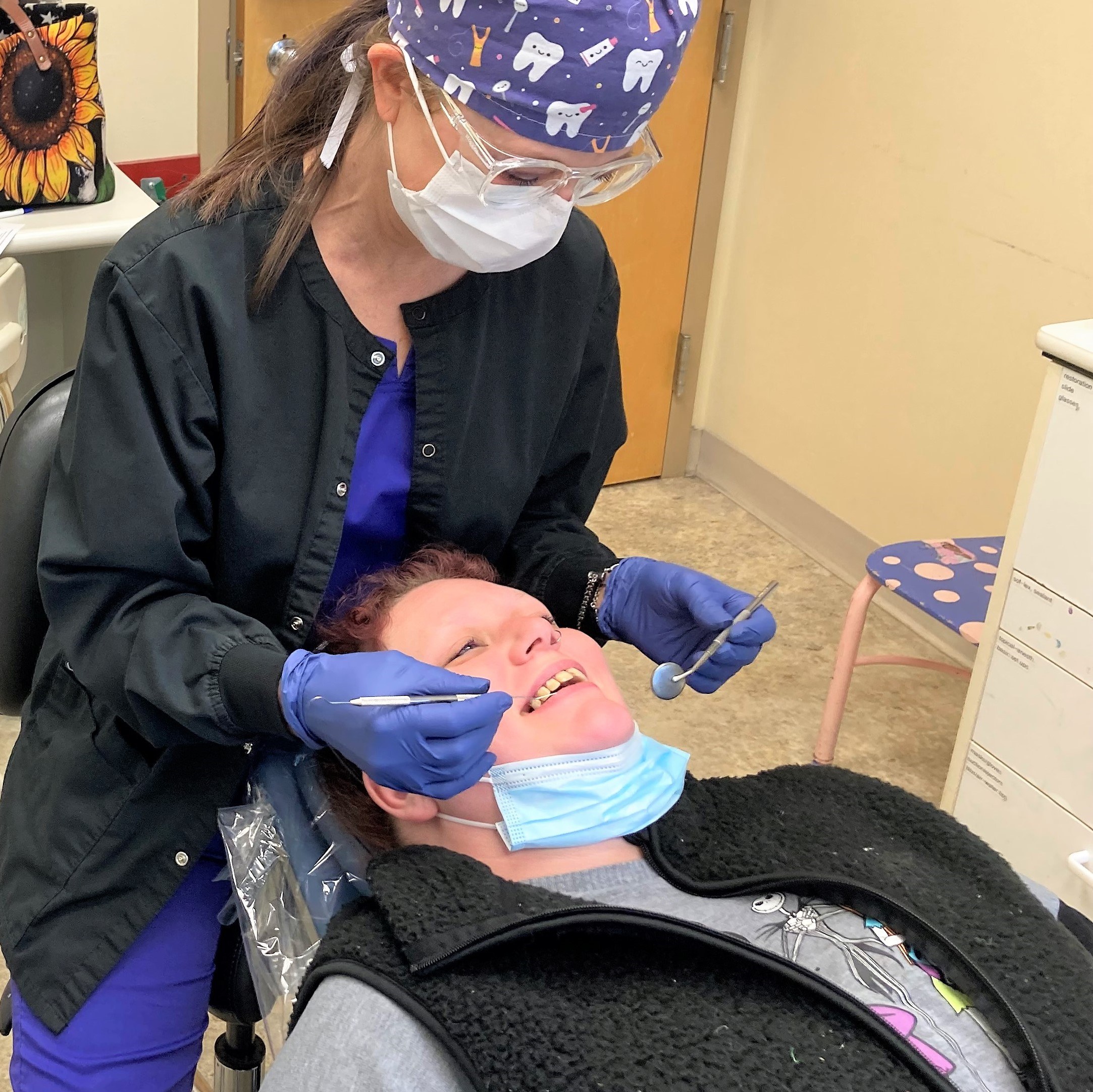$350 for a tooth extraction. $20 for a cab ride to a specialist appointment. $100 for an asthma medication. $700 for an IUD. For many people in our community, these expenses are insurmountable barriers that stand in the way of good health.
We have patient assistance funds to help patients pay for services that are essential for their health but fall outside the reach of our sliding fee scale, such as medications or transportation to appointments. As our Director of Operations Julie Hill, RN explained, “If all of the other resources that we work to pull together for people just aren’t enough, the funds are there to fill in the gaps.”
I’ve asked staff members to explain why these funds are essential to ensure every patient can access the care they need:
Dental Fund
“I’m surprised that people are able to function with teeth as bad as I’ve seen. I had a cracked tooth and it was excruciating waiting a few weeks until I could get into an oral surgeon. People are just living with that pain all the time. I have two patients I can think of who have been in so much pain they took the tooth out themselves. Abscesses or broken teeth keep people up at night, give them self-esteem issues, and make it hard to get jobs.” – Dental Hygienist Amy Stoddard
A few years ago, we began offering limited dental services to our adult patients, and the parents of our pediatric patients. Adult dental care is one of the biggest healthcare gaps in care in our area. Many of our patients have gone so many years without regular dental care that they need work far beyond the preventive care we can provide in-house on our sliding fee scale.
We plan to use our dental fund to help the patients with the greatest need access care at local dentists and oral surgeons.
Family Planning Fund
“We had a patient who needed an IUD, and they didn’t qualify for any other types of assistance. They didn’t have insurance, they didn’t qualify for Medicaid, but they qualified for our sliding fee scale. That doesn’t cover the cost of the device, however, and that’s hundreds of dollars. For someone who has that need and doesn’t have the resources, driving to a Planned Parenthood in Exeter or Sanford is a real burden. We want to be able to take care of the people in our own community.” – Director of Operations Julie Hill, RN
Contraceptives are covered at no cost by Family Planning Medicaid and most health insurance, but there are still some patients who fall through the cracks. The Family Planning Fund will cover the cost of contraceptives for patients who otherwise couldn’t afford them.
Pharmacy Fund
“A lot of times people will come in and be in crisis from having been off their meds for a while. Maybe because they’ve lost their job and their insurance so they couldn’t afford them. So we’ll give them a month’s worth of meds while we’re getting them hooked up with Medicaid and other social services.” – Medical Director Deborah Cross, APRN
“If someone is uninsured they may be able to get their medication at a steep discount through the Medication Bridge program, but that is an application process that takes time. In that gap period, the patient needs this medication and we can’t wait six weeks to start it. The Pharmacy Fund is how we cover that interim period of time.” – Director of Operations Julie Hill, RN
Transportation Fund
“Many Medicare patients don’t drive, because they’re older, and Medicaid doesn’t cover transportation like Medicaid does. And not everyone has family or friends who are able to take them to appointments during work hours. With the Transportation Fund we can hire a service to take them.” – Care Coordinator Cheryl Frankowski
“Transportation is so hard for people. Even with Medicaid [which pays for medical transportation], half the time the service cancels the rides last minute. With gas being so expensive and people coming from all over the place, say from Freedom or Ossipee, that’s a big one in terms of a barrier. I’ll want someone to come back in two weeks to check how a new medication is working but they will tell me they really can’t afford to drive up here again so soon. It’s nice to be able to offer a gas card so they can come back for a follow up.” – Medical Director Deborah Cross, APRN
This annual giving season, we’ll distribute all funds donated between these four patient assistance funds. Your donation will go directly to cover a medical cost for a patient in need.
In 2023, with your help, our providers won’t have to hesitate before telling a patient in pain we can help them get their tooth extracted, or before telling a worried parent we can give them a $30 gas card to bring their child to Dartmouth-Hitchcock to see a specialist, or before telling someone who lost their coverage we can get them their asthma medication today while we help them figure out the rest.
I hope you will help us get these new funds off to an abundant start!
Thank you,
JR Porter
Executive Director
